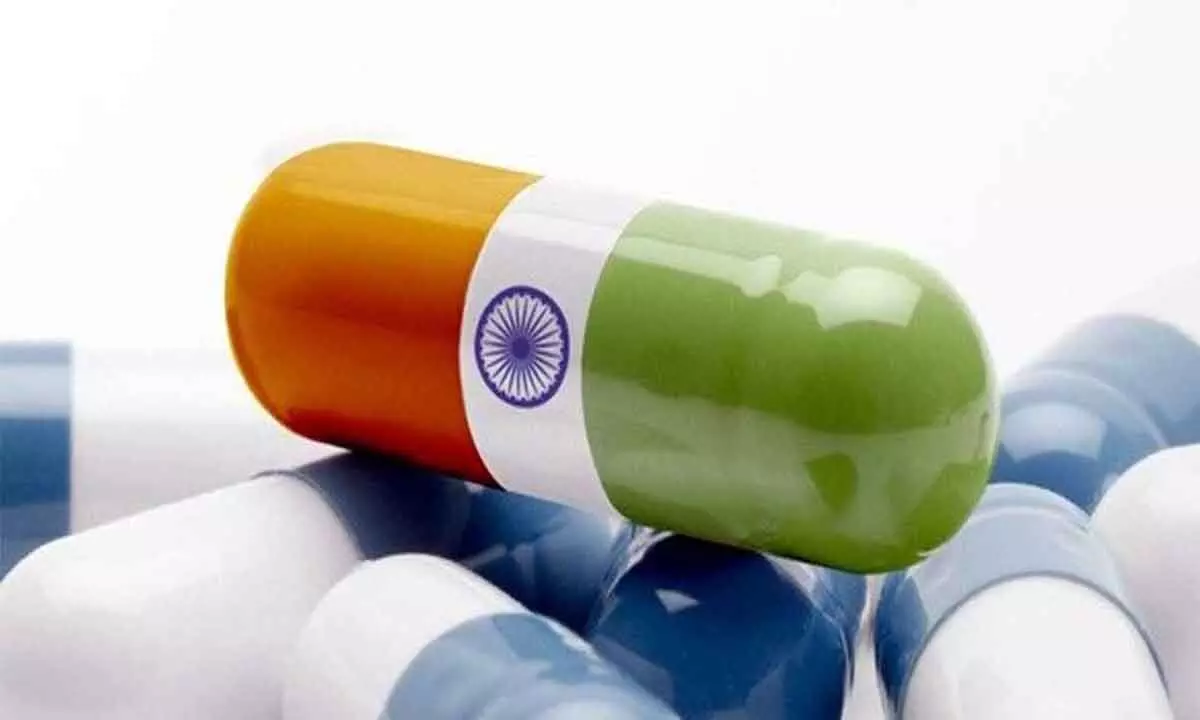It's time to rectify errors to regain image of Indian pharma industry
India needs to further intensify its quality systems in manufacture and in-house testing of drugs with stringent adherence to good lab practices (GLP)
image for illustrative purpose

In what can be termed as 'yet another severe beating' to the image of the Indian pharmaceutical industry, the Department of Drug Control Administration of Nepal has recently published a list of 16 manufacturing facilities of Indian pharmaceutical companies for failing to comply with the World Health Organisation's Good Manufacturing Practices (WHO-GMP), which is the drug manufacturing standard adopted by a large number of countries in the world.
The list of facilities which were not complied with the WHO-GMP, which were audited by the Nepal Drug Control Administration between March and July this year included the ayurvedic medicine facility of Divya Pharmacy, run by Yoga guru Baba Ramdev's DivyaYog Mandir (Trust). Other facilities named in the list include the facility of Cadila Healthcare in Sanand, Gujarat which manufactures vaccine, IPCA Laboratories' facility in South Sikkim, Zee Laboratories' facility in Himachal Pradesh, Alliance Biotech's facility for critical care products and others in Himachal Pradesh, and Concept Pharmaceuticals' facility in Maharashtra.
The other companies listed by the Nepal Administration for failing the WHO-GMP compliance include Radiant Parenterals, Mercury Laboratories, Dial Pharmaceuticals, and Marcus Laboratories in Gujarat; Captab Biotec, and Zee Laboratories in Himachal Pradesh; Unijules Life Sciences Ltd in Maharashtra; Anglowmed Ltd in Uttarakhand; Daffodils Pharmaceuticals Ltd in Uttar Pradesh; GLS Pharma Ltd in Telangana; and Shree Anand Life Sciences Ltd in Karnataka.
The Department in a notice issued on December 18, has also come out with a list of 45 WHO-GMP compliant Indian facilities including that of Sun Pharma Laboratories, Dr Reddy's Laboratories, Fresenius Kabi Oncology Ltd, IPCA Laboratories, Venus Remedies, Alkem Health Science, Alembic Pharmaceuticals, Shilpa Medicare, among others. While some of these facilities were already registered with the Nepal drug administration, some of the facilities are new.
Earlier this year, the Indian pharmaceutical industry's image was severely beaten when the World Health Organisation issued alert against four contaminated medicines - Promethazine oral solution, Kofexmalin baby cough syrup, Makoff baby cough syrup and Magrip N cold syrup -manufactured by the Haryana-based Maiden Pharmaceuticals that resulted in the death of 66 children in Gambia. In the backdrop of WHO's warning against four cough syrups manufactured by Indian manufacturer Maiden Pharmaceuticals Ltd, the Department of Drug Administration, Nepal had issued an alert in November 28 this year to increase its vigilance against the prevalence of cough syrups and other products which may contain ethylene glycol or diethylene glycol. Now the publication of the list indicates that the products from these facilities will not be able to export to Nepal. The Department of Drug Administration, Nepal in a notice has now asked the local agents in Nepal, which have been supplying these medicines, to immediately recall them. According to the notice issued by the Department, the medicines manufactured by the listed companies cannot be imported or distributed in Nepal.
Definitely, these two rather unpleasant incidents are a blot in the image of the country which has over the years donned the epithet of 'the pharmacy of the world' with the country exporting medicines to over 200 countries across the country including that of the developed nations like the US, UK, etc. Under this background, there is urgent need to further intensify its quality systems in manufacture and in-house testing of drugs with stringent adherence to good lab practices (GLP). As the country's pharmaceutical industry's image has taken a severe beating, there is pressing need to increase monitoring of WHO-GMP drug manufacturing units by the State Licensing Authorities (SLAs) in the country. It is the SLAs who issue Certificate of Pharmaceutical Product (CoPP) to the drug manufacturing units under the WHO-GMP Certification Scheme for the purpose of international commerce, i.e., for registration of products in foreign countries.
WHO-GMP is part of a quality management system to ensure that products are consistently produced and controlled to the quality standards appropriate to their intended use and as required by the marketing authorization. GMP defines quality measures for both production and quality control and defines general measures to ensure that processes necessary for production and testing are clearly defined, validated, reviewed, and documented, and that the personnel, premises and materials are suitable for the production of pharmaceuticals and biologicals including vaccines. GMP also has legal components, covering responsibilities for distribution, contract manufacturing and testing, and responses to product defects and complaints. Specific GMP requirements relevant to classes of products such as sterile pharmaceuticals or biological medicinal products are provided in a series of annexes to the general GMP requirements. It is strange that pharmaceutical units presumably holding WHO-GMP are found deficient by overseas regulators. It is time the drug authorities take the issue seriously and rectify the errors in the regulatory framework to ensure that only quality products are exported from the country.
(The author is a freelance journalist with varied experience in different fields)

